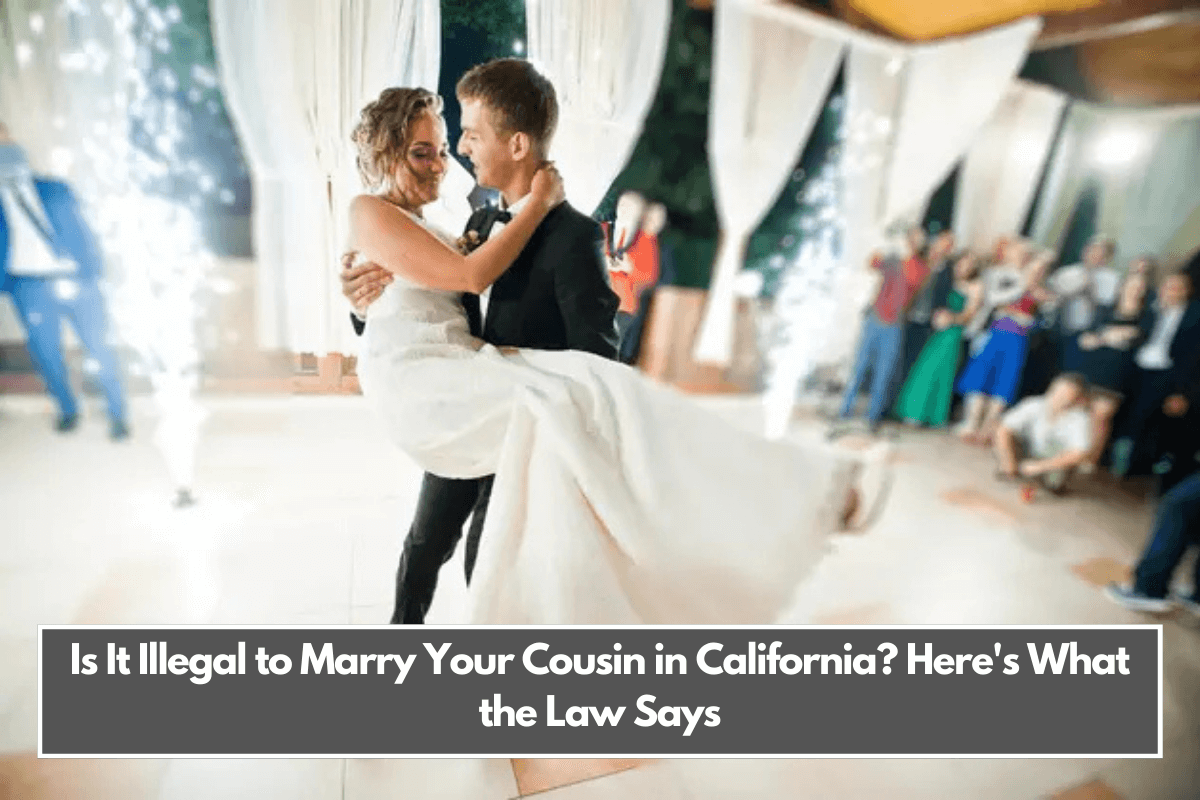In California, it is legal to marry your first cousin. The state’s marriage laws do not prohibit consanguineous relationships of this degree, making California one of 19 states in the United States that allow cousin marriages.
Legal Basis and Considerations
California’s stance on cousin marriages is rooted in several factors:
Cultural Diversity: The state recognizes and respects the cultural practices of its diverse population, where cousin marriages may be customary and socially accepted in some communities.
Autonomy and Right to Marry: California upholds the principle of individual autonomy and the fundamental right to marry, as protected under the U.S. Constitution.
Genetic Concerns: While there are concerns about potential genetic risks, research suggests that the increased risk of genetic disorders in offspring of first cousins is relatively small. The risk of birth defects for children born to unrelated parents is about 3-4%, while for first cousins, it’s estimated to be around 5-6%.
Legal Framework
California’s Family Code section 2200 specifically outlines prohibited marriages, which include:
- Parents and children
- Ancestors and descendants of every degree
- Brothers and sisters of any degree (including half-siblings)
- Uncles or aunts with nieces or nephews
Notably, first cousins are not included in this list of prohibited relationships, thus making their marriages legal in the state.
Comparison with Other States
California’s approach to cousin marriages differs from some other states:
- 25 states prohibit first-cousin marriages entirely.
- 5 states allow first-cousin marriages under certain conditions, such as age restrictions or genetic counseling requirements.
- 19 states, including California, allow first-cousin marriages without restrictions.
Implications and Considerations
While legal in California, those considering marrying their first cousin should be aware of several factors:
- Interstate Recognition: A cousin marriage performed in California may not be recognized in states where such unions are illegal.
- Genetic Counseling: Although not legally required, couples may want to consult with a genetic counselor to understand any potential risks for their offspring.
- Social Perceptions: Despite being legal, cousin marriages may still face social stigma or cultural taboos in some communities.
- Immigration Considerations: For international couples, U.S. immigration law recognizes cousin marriages as valid when performed in a state where such marriages are legal.
while California law permits marriages between first cousins, individuals considering such unions should be aware of the potential genetic, social, and legal implications, especially if they plan to relocate to other states or countries where these marriages may not be recognized or legal.
SOURCES:-
- https://www.jlegal.org/blog/is-it-legal-to-marry-your-cousin-in-california/
- https://www.newsweek.com/california-religious-group-raises-alarm-cousin-marriage-1911764
- https://www.findlaw.com/legalblogs/law-and-life/is-it-legal-to-marry-your-cousin/
- https://www.wksexcrimes.com/practice-areas/california-incest-laws-pc-285/
